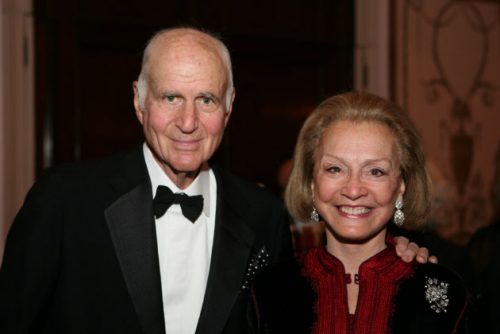Charity and philanthropy can help wealthy parents open up a broader discussion of how best to handle inherited wealth.
In May the New York Times’ Paul Sullivan published a piece on ‘How the Wealthy Talk to Their Children About Money.’ The profile of a handful of millionaire families proves interesting for what it reveals about the awkwardness introduced into the most intimate of relationships by the presence of significant sums of money. Sullivan cites a recent poll by the Wilmington Trust that suggests rich parents are hesitant to even bring up the topic with their children. From the report:
“The 57 research participants belong to families with a net worth of at least $20 million, including 72 percent with a family net worth in excess of $50 million. The majority of inheritors in the study […] are over 40 years of age, yet half of them have a limited understanding about the details of their inheritance including amount, timeframe, and in what forms it would be received, such as a lump sum, a trust, or mixture of both.”
The Wilmington Trust study ultimately found that “only a tenth” of families polled had shared “complete” information about inheritance. As reasons for withholding this information, some 29% of families pointed to “concerns about demotivating or disempowering heirs,” while about 20% “haven’t decided” what to do with their money.
Interestingly, of all the families polled only some 5% claimed that the information was “not the heir’s business.”
So rich families, like most others, aim at some form of honest communication between parents and children regarding finances; but, perhaps unlike their more humble counterparts, the wealthy tend to find the conversation difficult. Sure, there’s a real danger of overwhelming heirs with the news of their future net-worth, and many wealthy parents rightly go to great lengths to avoid giving their children the sense that they don’t need to work an ‘honest’ job or make their own money.
But at least as often, keeping quiet about the inevitable inheritance gives rise to more problems than it solves. Sullivan refers to Joel Treisman, the descendent of the Morris tobacco and Lehman banking dynasties who now works as a wealth coach but who found himself blindsided by his sizable inheritance. Treisman from the Times piece:
“Despite a Stanford degree and a Yale M.B.A. with all these financial management courses, I was totally unprepared to be an inheritor—and that was in my 40s. There was no family preparation. It was delegated to the family trust-and-estate lawyer to send me a letter on my 21st birthday to talk to me about wealth that was going to revert to me outright.”
Older, wealthier families like the Rockefellers have more experience dealing with this problem. They tend to talk to their younger members earlier on about the risks, challenges, and opportunities that family fortunes bring with them. Family wealth manager Maria Elena Lagomasino notes that wealthy parents do better when they “put the money in the context of the family.” Mr. Treisman found that philanthropy helped form an indispensable part of that context, giving his children a sense of how to manage and dispose of their money.
It’s a simple lesson, really, but one that goes a long way in the rarified world of the super-wealthy: Open communication between family members helps to avoid surprises down the road. For readers of Philanthropy Daily, this just goes to show that wealth and its uses are dependent upon a number of vague and subtle ‘soft’ factors, not least of all the relationships between parents and their children. Charity and philanthropy can help wealthy parents open up a broader discussion of how best to handle inherited wealth.







1 thought on “All in the family: how the wealthy talk about inheritance”